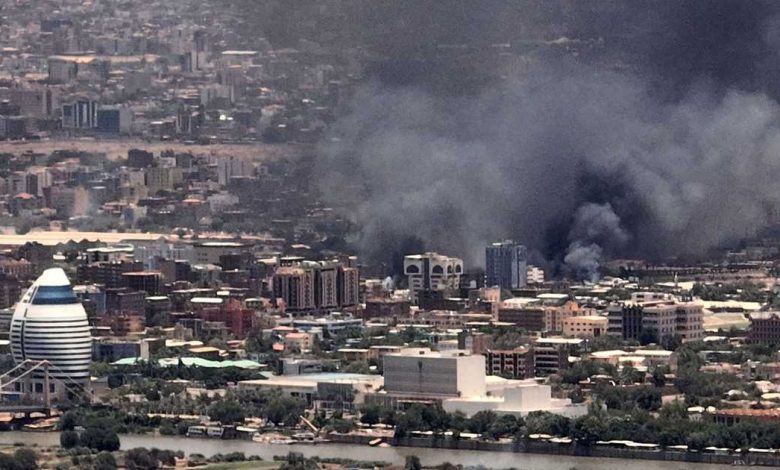Post-War Investment: Seizing Opportunities

Report by Rahab Abdullah
Following the successive victories of the Sudanese army in the War of Dignity and the liberation of many areas in Khartoum from the militia’s grip, signs of the resumption of investments and industries have begun to emerge. The Aseel Holding Group announced the reopening of the first factory in the Omdurman Industrial Zone, which had been shut down since the outbreak of war in mid-April 2023.
Aseel Group confirmed that the factory’s reopening and the start of production followed the approval of the Khartoum State Security Committee, chaired by the state governor. The group described this as a significant achievement, given the destruction their factories in Omdurman and Bahri suffered at the hands of the rebel militia.
Forced Suspension
In the early months of the war, many investment institutions announced the suspension of their projects and the layoff of employees until further notice, as the conflict devastated the infrastructure of factories and facilities in affected states. These challenges hindered investment, even as the Sudanese government continued its efforts to attract both foreign and domestic investors to operate in secure regions.
Economic expert Dr. Abdelazim Al-Mahal estimates that Sudan’s economic losses from the war exceed $100 billion, with 70% of economic activity coming to a halt. Meanwhile, informed sources suggest that the cost of the conflict in Sudan amounts to approximately half a billion dollars per day, according to unofficial estimates.
Rising Unemployment Rate
According to Dr. Al-Mahal, the war has driven Sudan’s unemployment rate up from 32.14% in 2022 to 47.2% in 2024, based on IMF statistics. Inflation rates have also surged to 256.17%, reflecting a 117.4% increase, while export activity has declined by more than 60%.
Approval of the Investment Legislation Law
The Sudanese government has shown significant interest in investment, as evidenced by the 2019 Transitional Constitutional Document (amended in 2025), which was approved in a joint meeting of the Sovereignty Council and the Council of Ministers last Wednesday. During the meeting, amendments to the 2015 Companies Act and the 2021 Investment Legislation Law were approved.
Destruction of Infrastructure
Acting Minister of Investment and International Cooperation, Ahlam Mahdi Sabil, acknowledged the severe impact of the war, which was triggered by the Rapid Support Forces’ rebellion against state leadership. She emphasized the massive destruction of infrastructure, factories, and institutions—particularly in the capital and several states.
Speaking to Al-Ahdath, the minister stated that investment, like other key economic sectors, has suffered from the war’s consequences. The agricultural, industrial, and service sectors—especially projects in Khartoum State—have been hit hard due to destruction, lack of funding, shortage of production inputs, and disruptions in transportation.
Investment Sector Strategy
Minister Ahlam Mahdi revealed to Al-Ahdath that her ministry has developed post-war investment strategies, emphasizing that the sector remains promising. She noted Sudan’s participation in multiple investment forums to sign new agreements and activate existing ones.
She stated:
“We are moving forward in attracting more high-value investment partnerships that will boost the economy and rebuild what the war has destroyed. Our promotional efforts focus on infrastructure projects in all fields, including renewable energy, electricity, roads, bridges, and railways.”
Investment Requests
Despite the war, the minister confirmed that her ministry continues to receive investment applications, and no projects have been canceled so far. She emphasized Sudan’s efforts to attract more investments by offering incentives, guarantees, and privileges to investors.
She added that the war has, in some ways, motivated rather than hindered efforts to attract both national and foreign investments.
Effective Reconstruction Plan
Economic expert Dr. Walid Dalil highlighted that post-war economic reconstruction depends on a country’s unique circumstances and the extent of economic destruction. In Sudan’s case, the pre-war economy was already fragile due to various social and political challenges.
Dalil outlined several key points for an effective reconstruction strategy:
A realistic plan that considers Sudan’s economic and geopolitical conditions and maximizes available resources.
A focus on key economic sectors that directly contribute to recovery.
Rebuilding infrastructure by contracting global firms to reconstruct roads, bridges, airports, and ports destroyed by war, using Build-Operate-Transfer (BOT) agreements that suit Sudan’s post-war financial constraints.
Creating job opportunities and ensuring political stability.
Providing support for small and medium-sized enterprises (SMEs), which are crucial to Sudan’s economy.
A strong commitment from the country’s leadership to drive reconstruction efforts.
Future Prospects
A working paper presented at the Industrial Investment Forum in the Nile River State, prepared by Noor Al-Daim Mudawi Babiker and Investment Commissioner Islam Al-Sadiq Salama, emphasized the importance of preparing the investment environment and creating a favorable climate for investors.
Key recommendations included:
Developing a national and regional investment map, with support from the Ministry of Investment and the Military Survey Authority, to provide essential data for investors.
Promoting food security projects and public-private partnerships (PPP).
Enhancing economic partnerships with friendly nations and adopting renewable energy technologies, particularly solar panel manufacturing.
Expanding the electronics, steel, gold processing, and pharmaceutical industries, with a focus on export-oriented production to help reduce Sudan’s trade deficit.
Establishing free industrial and agricultural zones in various states.
Implementing state-specific investment policies that align with each region’s economic advantages.
Hosting local, regional, and international investment forums to attract capital and global investors.



